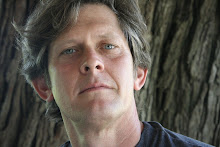My tomato plants lived a long and fruitful life. May they rest in pieces … in the compost pile.
More and more, people are starting their own backyard compost piles. Far from being a Johnny-come-lately idea, humans have practiced various forms of composting for millennia. Early farmers found that a mix of animal waste, straw, crop residues and other organic material would gradually turn into a rich, fertile, soil-like substance that was very good for growing crops. Archeological evidence shows signs of deliberate composting in Mesopotamia a thousand years before the birth of Moses, and George Washington - father of our country – was so much a proponent of compost that he constructed a special structure solely devoted to composting.
What is compost anyway?
When green organic material – grass clipping, table scraps, animal waste, etc. – containing large amounts of nitrogen are combined with brown organic material – dried leaves, wood chips, etc. – that have lots of carbon, a curious thing happens. Microscopic bacteria and fungi go to work to speed up the decomposing process, and the material breaks down into a dark, fertile blend. Mother Nature does this all the time; active composting just speeds up the process.
So what are the advantages of composting?
When added to the soil in your garden, compost supplies necessary nutrients lessening the need for synthetic petroleum-based fertilizers. The highly organic nature of compost holds moisture keeping your garden from drying out too quickly on hot summer days. And the loose structure of compost helps aerate your soil facilitating healthier plant growth.
On a broader scale, what goes into the compost bin does not have to be picked up, transported, and buried in a landfill. The Environmental Protection Agency has estimated that lawn clippings and table scraps comprise over a quarter of all the waste that winds up in American landfills. And who pays for that? You do. In an age of clamor for smaller government and lower taxes, composting on a grand scale can reduce public expenditures. Many cities in the US have instituted city-wide composting programs that are reducing the cost of trash pick-up and disposal.
You can purchase a home composter, and there are plenty of good ones on the market, but if you’re a budget-minded do-it-yourselfer, you may want to consider making one. All you really need is about a three foot by three foot space in your back yard. Choose a location that is convenient to your garden, has good drainage and has at least partial shade. You can construct a bin out of wood and chicken wire, but it really can be as simple as layering dried leaves and table scraps on the ground. Turn the bin or stir the pile regularly to keep it well oxygenated, and if it dries out, add a little water.
Think about starting a compost pile when you turn in this summer’s garden. Add table scraps, fall’s falling leaves, and even this newspaper, and by spring, you’ll have a healthy and inexpensive head start for your next garden.






